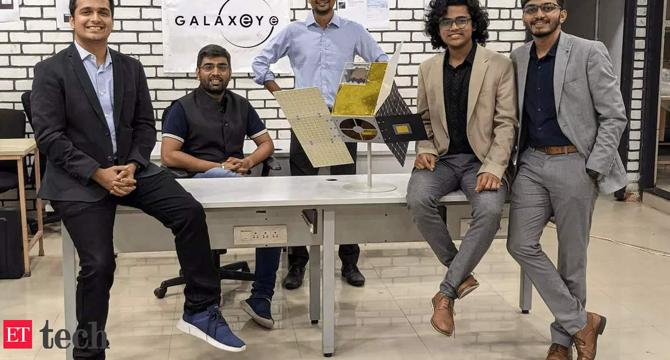Economic Times
4w
288

Image Credit: Economic Times
Space startup GalaxEye to launch 'Drishti satellite' through Elon Musk's SpaceX
- Space startup, GalaxEye is set to launch the first-of-its-kind multi-sensor Earth observation (EO) satellite, 'Drishiti', in collaboration with Elon Musk's SpaceX from mid-2025, with the ready-to-launch satellite due for transport to the US soon.
- The satellite will weigh 150kg and have high-resolution indigenously-developed sensors, making up part of a constellation of five satellites focused on various altitudes and providing data across various sectors.
- Infosys recently acquired a minority stake in GalaxEye, worth Rs 17 crore, and intends to leverage the company’s vast expertise and global market reach to manage the vast amount of data generated by the satellite once it is in orbit.
- The co-founder of GalaxEye said the goal is to make satellite imagery more accessible to enable industries across various sectors to recognise the inherent value of satellite data.
- The satellite will be launched using SpaceX, making GalaxEye the first Asian startup to do so, with India's ISRO spaceport previously a contender.
- The Drishti satellite will utilize Synthetic Aperture Radar (SAR) and Multi-Spectral Instrument (MSI) sensors to capture high-resolution images of the Earth, providing distinct insights to decision-makers in various sectors.
- GalaxEye has filed for a global patent for this multi-sensor Earth observation satellite as it offers a new approach to making satellite imagery accessible in pricing and in the valuable data it can provide.
- Overcoming many challenges, GalaxEye successfully completed the development of the satellite in 3 years.
- Standalone satellite imagery is typically not sufficient for industries, as companies rely on multiple sources of intelligence when making decisions. Collaborating with other companies in this industry can tap into those broader ecosystems.
- Frugality is ingrained in India's DNA said Mehta, as the GSAT-11 satellite cost only about 50-60% of what similar satellites previously launched, and this frugality is demonstrated in their innovative and integrated approach to using two sensors at that price point.
Read Full Article
17 Likes
For uninterrupted reading, download the app